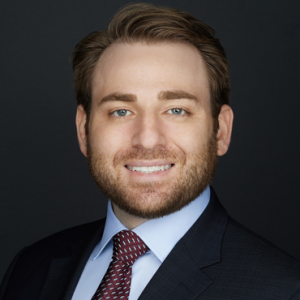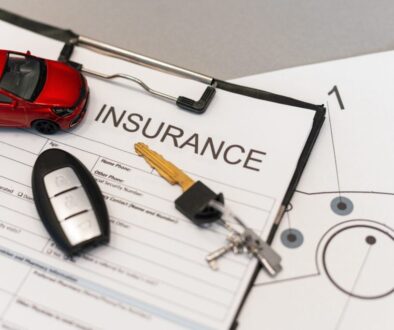What Can You Do After You Hit Your Head in a Car Accident?
Car accidents often cause a driver or passenger’s head to strike the window, steering wheel, or headrest with significant force. As a result, they may suffer a traumatic head or brain injury, such as a migraine, concussion, or other serious head injury.
If you recently suffered a head injury in a car accident, complete your medical treatment regimen and consult an experienced car accident lawyer in your area as quickly as possible.
By retaining legal counsel as early on in the process as possible, you increase your chances of recovering favorable settlement or litigation compensation in your case.
Your attorney can investigate your accident and file a personal injury claim with the at-fault driver’s insurance company.
Your lawyer can then help you negotiate settlement compensation from the insurance company or file a lawsuit and litigate your case in the court system to a conclusion.
Throughout the process, your attorney can answer all your legal questions and help you make informed decisions about how best to resolve your car accident claim or lawsuit.
Common Causes of Area Car Accidents that Lead to Serious Head Injuries
Area car accidents frequently happen when other drivers behave negligently or carelessly. When drivers commit negligent actions and inactions, they may cause another driver or passenger to hit their head on something in the vehicle, bringing about a traumatic head or brain injury.
Some drivers violate multiple traffic laws, such as right-of-way laws, speed limits, and turn signal laws, resulting in serious car crashes. At other times, drivers may fail to use the technological devices in their vehicle, including lane change warnings, electronically adjustable mirrors, and backup cameras.
Serious car crashes may also occur when drivers react inappropriately to a roadway situation that arises. This is often called road rage. When drivers exhibit road rage, they might fail to properly use their turn signal, speed, tailgate other motorists, or aggressively try to weave around traffic to get ahead.
However, when drivers drive recklessly and fail to observe the road, they may negligently bring about a severe accident that causes another driver or passenger to suffer a head injury.
Another common cause of local car crashes is distracted or inattentive driving. Instead of watching the road in front of them attentively, a driver might instead focus on electronic devices in their vehicle, such as a smartwatch, cell phone, or GPS navigation system.
At other times, vehicle passengers might distract drivers from the road. When a driver looks away from the road for any reason, they may inadvertently bring about a serious accident with another vehicle or pedestrian, causing severe injuries.
Finally, some car accidents occur when drivers drive under the influence of alcohol or drugs. Most drivers with a blood alcohol concentration exceeding 0.08 percent are legally intoxicated. Stricter standards apply to commercial drivers and drivers under 21.
Drunk driving is extremely dangerous because it has the potential to seriously affect a driver’s mindset and ability to drive safely and carefully. For example, an intoxicated driver might experience blurred vision and confusion. They may also suffer from delayed reflexes, preventing them from hitting their brakes in time to avoid a severe crash.
If you sustained injuries in one of these car crashes, you should obtain the legal help you need as quickly as possible. A car accident attorney can evaluate the strengths of your claim and help you pursue the compensation you need through a favorable monetary settlement, arbitration award, or jury verdict.
Types of Car Accidents that Result in Serious Head Injuries
Several types of car accidents may lead to debilitating head or brain injuries.
Those unfortunately all-too-common accidents include:
- Head-on collisions, where the front of one vehicle strikes the front of an oncoming car that is traveling in an opposing direction, potentially leading to permanent head injuries or fatalities
- Sideswipe accidents, where the side of one vehicle hits the side of another car that is traveling in a different travel lane but in the same direction as the at-fault vehicle
- Rear-end crashes, where the front of one vehicle hits the back of another car, possibly causing the driver or passengers in the front car to strike their head on the steering wheel, headrest, or window and suffer a concussion or another head injury
- Broadside or T-bone accidents, where the front of one vehicle strikes the side portion of a car that is traveling on an intersecting road
If you recently suffered a head injury in one of these types of car accidents, you should consult with an experienced car accident attorney as quickly as possible.
After you complete all the necessary medical treatment for your head injury, your attorney can prepare and file a claim on your behalf and begin settlement negotiations with the insurance company adjuster handling your personal injury claim.
Common Types of Head Injuries in a Car Crash
Serious motor vehicle crashes can lead to debilitating head injuries, some of which are permanent. A permanent head injury will likely cause the accident victim to suffer symptoms and pain for the rest of their life.
Moreover, if a driver or passenger suffers a permanent head injury, they may need ongoing medical treatment, such as with a neurologist or other medical specialist.
In a car accident, head injuries typically happen when a driver’s head and neck move abruptly forward and backward or from side to side. These injuries may also materialize when the accident victim’s head contacts a vehicle component.
Common head injuries that accident victims may suffer include:
Concussions – A concussion is damage to the brain from the brain striking the inside of the skull. This movement can disturb and harm neurons and axons, causing memory impairments and other serious problems. Concussions frequently come with possible short and long-term symptoms. Short-term symptoms of a concussion may include nausea, dizziness, short-term memory loss, and headaches. On the other hand, long-term concussion symptoms may consist of post-concussive migraine syndrome and permanent memory loss or cognitive impairments.
In some car accident scenarios, drivers or passengers may suffer a coma or another permanent head injury. When an individual is in a coma, they are unresponsive to external stimuli. If the head injury is severe enough, the accident victim may wind up in a permanent vegetative state, requiring life support to remain alive.
If you or a person you care about suffered injuries in a recent motor vehicle crash, you should immediately get the legal help you need. Your lawyer can help you recover the monetary compensation you need to become whole again after your accident and, if necessary, take your case to a civil jury trial or other litigation proceeding.
Essential Steps to Take Following a Car Crash Head Injury
If you suffer a headache, concussion, or other serious head injury in a car accident, there are specific steps that you should always take.
First, you should complete any prescribed medical treatment regimen for your injury. After visiting an urgent care facility or hospital emergency room, many healthcare providers will prescribe a treatment regimen for accident victims to complete.
By fully completing this treatment, you increase your chances of making a full recovery from your head injury. You also show the insurance company that your head injury is severe and you deserve ample compensation.
In addition to completing your medical treatment regimen, you should gather and keep all documents about your head injury case. For example, you should obtain and retain copies of police reports, witness contact information, witness statements, medical records, medical bills, and head or brain imaging studies. You should then give these documents to your attorney once they begin representing you in your case.
Retaining qualified legal counsel is equally essential when pursuing and recovering the maximum monetary damages you need for your traumatic head injury.
Your lawyer can assist you at every stage of your case by thoroughly investigating your accident circumstances, retaining an accident reconstructionist if necessary, gathering documents on your behalf, submitting a settlement demand letter and demand package to the insurance company, and negotiating settlement compensation on your behalf.
Your lawyer can handle all written and oral communications with insurance company representatives and even threaten the insurance company with litigation if they will not offer you the head injury compensation you deserve.
If the insurance company denies your head injury claim, for whatever reason, your attorney can highlight the relevant portions of your medical records in an attempt to convince the insurance adjuster to change their mind. Your lawyer can also retain a medical expert, such as a treating neurologist, to causally relate your claimed head injury to the accident.
A medical expert can:
- Physically examine you
- Draft a report that causally relates your head injury to the accident and/or establishes that your head injury is permanent, to a reasonable degree of medical certainty
- Testify at one or more litigation proceedings, such as a discovery deposition or civil jury trial
If litigation becomes necessary in your case, your lawyer can file a lawsuit on your behalf and continue their negotiations with insurance company representatives.
They can also prepare you for all litigation proceedings in your case, including depositions, jury trials, and binding arbitration hearings, and aggressively represent you at those proceedings.
For example, at a civil jury trial or binding arbitration hearing, your attorney can submit evidence on your behalf, introduce relevant expert testimony, and pursue the highest monetary compensation available.
Monetary Compensation for a Car Accident Head Injury
Head injuries in a car accident can lead not only to high medical expenses but also to severe lifelong consequences. To recover monetary compensation in a head injury case, the accident victim must first establish their legal burden of proof. Specifically, they must show that the car crash and head injury occurred because of that driver’s negligence.
You can recover various monetary damages if you can prove the legal elements of your head injury case.
Those economic damages may include compensation for all of:
- Related past and future medical expenses
- Lost income and/or loss of earning capacity
- Loss of enjoyment of life
- Loss of the use of one or more body parts
- Permanent cognitive impairments and memory losses
- Mental anguish and distress
- Permanent disability or disfigurement
Your attorney can establish which of these damages you can recover in your case and will work to pursue them via a favorable monetary settlement award or litigation result.
Proving liability for your accident and head injury is only half the legal battle, as you also must prove the damages you deserve. Head injury cases pose particular challenges. The effects of a head injury are not always obvious, which can lead insurance adjusters to underestimate your claim.
The right attorney who has represented head injury victims will know how to calculate and prove your losses. Always work with someone who understands this type of complex injury.
Talk With a Local Car Accident Lawyer Today

If you suffered a severe concussion or other head injury in a recent car accident, time is of the essence. Car crash victims only have two years from the date of their accident to pursue financial compensation for their head injuries and other losses.
If an accident victim does not file their lawsuit on time, they forever waive their right to recover monetary damages for their accident-related injuries.
Because head injuries can have adverse lifelong effects, it’s best to enlist the help of an experienced accident lawyer. While trying to recover from your injuries, the last thing you want to worry about is a complicated upcoming legal battle.
A personal injury attorney in your area can investigate your accident circumstances and file a timely claim or lawsuit on your behalf for the total monetary compensation you deserve.





